Dr Angelo Contarino
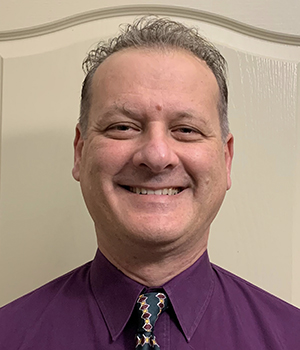 Angelo has been a member of the APS since early 1994 and a member of the APS College of Clinical Psychologists (CCLP) since 2011. He is currently in his sixth year serving on the Queensland section committee of the CCLP which has included one year as a general member (2016), five years as Chair Elect, Acting Chair, and Chair (2017-2021), and more recently Secretary. Subsequently, Angelo has also contributed as a wider group member of the National CCLP committee, in his current roles as the Chair of the upcoming National CCLP Conferences in 2022 and 2023, his lead of the On-line Peer Group Supervision (OPSG) project, and his participation in the National CCLP executive committee. Angelo has contributed to numerous college and broader APS activities, including promoting and advocating for the role of psychologists, organising CPD events, disseminating relevant information, and offering consultation services for multiple college submissions. He has also commenced providing supervision training and masterclass workshops for the APS since July 2021.
Angelo has been a member of the APS since early 1994 and a member of the APS College of Clinical Psychologists (CCLP) since 2011. He is currently in his sixth year serving on the Queensland section committee of the CCLP which has included one year as a general member (2016), five years as Chair Elect, Acting Chair, and Chair (2017-2021), and more recently Secretary. Subsequently, Angelo has also contributed as a wider group member of the National CCLP committee, in his current roles as the Chair of the upcoming National CCLP Conferences in 2022 and 2023, his lead of the On-line Peer Group Supervision (OPSG) project, and his participation in the National CCLP executive committee. Angelo has contributed to numerous college and broader APS activities, including promoting and advocating for the role of psychologists, organising CPD events, disseminating relevant information, and offering consultation services for multiple college submissions. He has also commenced providing supervision training and masterclass workshops for the APS since July 2021.
Angelo has worked in various public and private sector psychology roles since initial registration with the Psychology Board of Queensland in 1992. These have included inpatient and community mental health teams (adults and children), crisis response teams, educational settings, as a clinical support supervisor and training manager in the disability employment sector, and in a private practice since 1997. Following completion of his Doctorate in Clinical Psychology in 2011, Angelo continued working in educational and Queensland Health roles, until moving into full-time private practice in 2018. Throughout his career he has provided compassionate and evidence-based supervision and training services for the 4+2 and 5+1 pathways, masters and doctoral level students as part of their internship programme at UQ Psychology Clinic and on externship placements, the clinical registrar programme, psychology peers, and other health discipline colleagues.
Ms Kylie Coventry
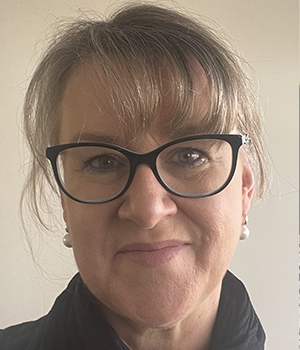
Kylie has worked as a psychologist in clinical practice for over 30 years. Over this time, Kylie has been a dedicated member of the APS and Fellow of the College of Counselling Psychologists.
Since 2009, Kylie has been on the College of Counselling Psychologists’ WA committee, becoming Treasurer in 2011. She was elected as the WA State Chair in 2014 and joined the National Executive Committee. At this time the Curtin University Master’s/PhD Counselling Psychology program was thriving, and Kylie was very involved with arranging networking and CPD events with local, interstate, and international presenters. She was an active Chair, promoting counselling psychology in WA, and working closely with the APS State Committee and Perth Branch, to provide a platform for WA psychologists to collaborate, e.g., coordinating three successful Psychology Week events.
In 2019, Kylie was appointed Deputy Chair of the National College of Counselling Psychologists. In this role, she took-on lead roles in College CPD, conference and networking events. Kylie was also involved in advocacy and co-authored submissions to the MBS review, the Productivity Commission Inquiry, and other key consultations, to promote not only counselling psychologists, but all psychologists, and the contribution they make to better mental health in Australia.
While State Chair, Kylie provided mentorship for psychology students and early career psychologists, encouraging them to join the APS and contribute their knowledge and skills to the Committee, and more broadly, through CPD events and APS consultations.
Throughout her career, Kylie has maintained involvement with Curtin University and is currently an Advisory Committee member to Curtin University Master of Psychology (Professional) program and provides supervision to provisional and early career psychologists.
Kylie stepped down from her roles with the State and National College Committees in late 2020 when she was appointed to a position in Policy at the APS.
Ms Leanne Faraday-Brash
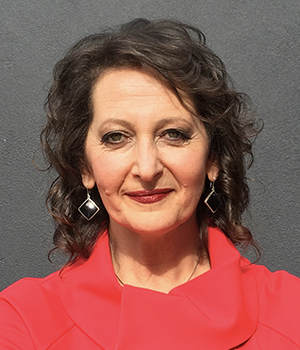
Leanne Faraday-Brash FCOP is an organisational psychologist, internationally accredited speaker and Principal of Brash Consulting, a boutique organisational psychology practice specialising in “workplace justice” (Equal Opportunity, Employee Relations and ethics), organisational health (resilience, motivation, conflict and performance psychology) and organisational development (culture, leadership and change). Her strong foundation in organisational psychology informs her approach as a frank and fearless executive coach, facilitator, mediator, investigator and trainer.
Leanne’s most significant contribution to COP and the APS since 2009 has been the promotion of organisational psychology to both community and business as Coordinator of the COP Media Panel. She has appeared frequently on radio, television and as a primary voice for journalists on the “tricky people stuff” including sporting and corporate “scandal handle”, #MeToo, toxic cultures and workplace dynamics; making organisational psychology relevant and accessible to the public at large.
Additional contributions to the APS include:
- Facilitation of a strategy workshop for the National COP Committee
- Two Social Media campaigns for National Psychology Week
- MC’ing inaugural APS COP Workplace Excellence Awards 2016
- Lead Judge Workplace Health, Safety and Wellbeing category for the APS COP Workplace Excellence Awards 2018, 2019
- APS IOP conference workshop “Preaching to the Diverted” – Achieving attitudinal and behavioural change with stuck, distracted, hostile or otherwise resistant audiences
- APS IOP conference 2019 “Relevant and Real” - Elevating the credibility and visibility of our profession
- Moderating the APS IOP conference 2019 debate on Artificial Intelligence
- Articles for the APS InPsych magazine e.g. “Coaching, Coaxing and Counselling” on Executive Coaching and “The science and art of terrific teams” with Gina McCredie FAPS and Pauline Willis MAPS
- Writing the APS Psychlopaedia fact sheet on Sexual Harassment in the wake of the #MeToo phenomenon 2019
As a professional speaker, Leanne has presented on five continents and clients include Thomson Reuters, AIA, Standard & Poors, Amcor, Nike, Department of Premier and Cabinet, AXA, HESTA, the Women’s Hospital and Unilever.
She is the author of “Vulture Cultures” published by Australian Academic Press.
Dr Zoe Hazelwood
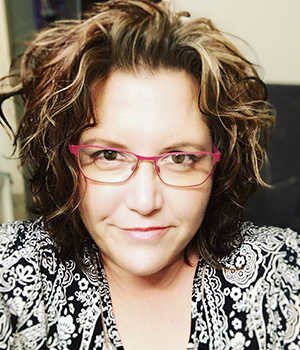
Zoë has maintained active engagement with the APS since commencing student membership with the APS at UQ in 1992. She has held office bearer positions with the APS Psychology of Relationships Interest Group (PORIG) since 2004, including Conference Chair and/or Scientific Committee Chair for four APS-PORIG annual conferences and Editor of the APS-PORIG Conference Proceedings for five years.
Zoë is Clinical Program Coordinator for the Master of Clinical Psychology at QUT. In 2008 she won an ALTC Citation for Outstanding Contribution to Student Learning and was nominated for an Australian Award for University Teaching Award for Teaching Excellence in 2012. Zoë has undertaken pedagogical research into fostering the development of psychology students’ graduate attributes; student engagement in the classroom; interprofessional practice for psychology students; and reflective practice in psychology. Zoë has a sustained commitment to her clinical research area—understanding factors that promote relationship wellbeing and happy, healthy coupling. She is the director of the CARE Lab (Communication, Attachment and Relationship Experiences) at QUT, and has conducted or supervised over 70 research projects in the field of relationship science. She is an invited reviewer for several international journals in interpersonal relationships and has authored two definitive textbooks in the field of interpersonal processes for allied health professionals. Zoë is a regular contributor to print and video media and was once approached by a large international online dating agency to be their Australian research spokesperson.
Zoë maintains a small private practice as an in-demand couples’ therapist, working towards achieving advanced certification as an emotionally focused couples’ therapist with Sue Johnson’s ICEEFT organisation in Canada. Zoë is committed to delivering effective, evidence-based interventions to clients using feedback-informed therapy (FIT) objectives to strengthen the therapeutic alliance and objectively assess client progress. She encourages her clinical supervisees to do the same, including undertaking a deliberate practice approach to their training.
Assoc Prof Christopher Lee
 Chris has been a member of the APS for 36 years. Chris was an APS board director from 2016-2020. He has also served as a committee member of the Perth branch where he was the public relations co-ordinator and newsletter editor for 4 years and later served on the committee of the Perth branch of the clinical college. For over 14 years he worked in public mental health both in inpatient and community contexts. Chris then accepted a half-time position in academia and taught at Murdoch university from 2004-2016 principally in the post graduate clinical master’s programme. He was the programme chair for two of those years. He is currently an adjunct associate professor at the University of Western Australia. His research has been internationally recognised as evidenced by receiving 5 awards for research excellence from organisations such as the European Society for Traumatic Stress Studies and International Eye Movement Desensitization and Reprocessing (EMDR) association. In addition to his research, Chris has maintained a half-time private practice and run a therapy training business that has delivered training in various therapy approaches (EMDR, Schema Therapy, DBT) and in supervision to over 4000 health professionals. His therapy trainings have also gained an international reputation and led to the delivery of workshops in Indonesia, Singapore, the Netherlands, Germany, New Zealand, the USA. In 2011, Chris was awarded the Ian Campbell prize for contributions as a scientist-practitioner to Clinical Psychology in Australian. In terms of public service, Chris has been on the board of 4 mental health charities and was appointed to an expert reference group for treating borderline personality disorder for the Commonwealth Department of Health. He is currently involved in several international randomised controlled trials on schema therapy and various trauma treatments.
Chris has been a member of the APS for 36 years. Chris was an APS board director from 2016-2020. He has also served as a committee member of the Perth branch where he was the public relations co-ordinator and newsletter editor for 4 years and later served on the committee of the Perth branch of the clinical college. For over 14 years he worked in public mental health both in inpatient and community contexts. Chris then accepted a half-time position in academia and taught at Murdoch university from 2004-2016 principally in the post graduate clinical master’s programme. He was the programme chair for two of those years. He is currently an adjunct associate professor at the University of Western Australia. His research has been internationally recognised as evidenced by receiving 5 awards for research excellence from organisations such as the European Society for Traumatic Stress Studies and International Eye Movement Desensitization and Reprocessing (EMDR) association. In addition to his research, Chris has maintained a half-time private practice and run a therapy training business that has delivered training in various therapy approaches (EMDR, Schema Therapy, DBT) and in supervision to over 4000 health professionals. His therapy trainings have also gained an international reputation and led to the delivery of workshops in Indonesia, Singapore, the Netherlands, Germany, New Zealand, the USA. In 2011, Chris was awarded the Ian Campbell prize for contributions as a scientist-practitioner to Clinical Psychology in Australian. In terms of public service, Chris has been on the board of 4 mental health charities and was appointed to an expert reference group for treating borderline personality disorder for the Commonwealth Department of Health. He is currently involved in several international randomised controlled trials on schema therapy and various trauma treatments.
Dr Jessica Paynter
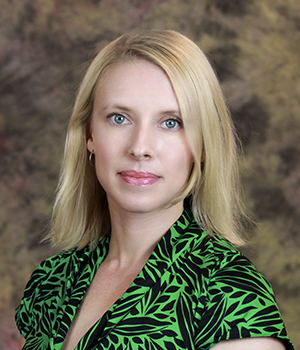
Jessica is a clinical psychologist and a Senior Lecturer in the School of Applied Psychology, Griffith University. She is also the Vice President of the Australasian Society for Autism Research. Jessica has over 15 years’ experience working in the field of autism across research and practice in early intervention, education settings, private practice, and tertiary education.
Jessica has made contributions to the practice of psychology through clinical practice, clinical and research supervision, and teaching at both undergraduate and postgraduate levels in the areas of developmental psychology, assessment, and disability. Her clinical practice includes assessment, parent/family support, and supporting social and emotional goals of individuals on the autism spectrum. Jessica’s contributions to teaching have been acknowledged via teaching awards, and she is highly sought after as a research and clinical supervisor.
Jessica is passionate about developing, evaluating, and translating evidence-based practices to address real-world challenges in collaboration with the autism and autistic community. This has culminated in resources and training for psychologists, allied health professionals, teachers, and librarians as well as >75 peer-reviewed publications cited internationally in >50 countries.
Jessica has held continuous APS full membership since 2013 and made substantial contributions during this time. She has contributed to advocacy including providing input and presenting a submission to the Joint Standing Committee on the National Disability Insurance Scheme Early Childhood Early Intervention Approach. She has provided professional development in the area of autism to members nationally via workshops for the Professional Development, contributions to the Autism Online Practice Modules, and presentations for branch and interest groups. Jessica has held various positions and been an active member of local and national committees including on the Psychology of Intellectual Disability and Autism Interest Group and Gold Coast Branch, has written for InPsych, and is an associate editor of the Clinical Psychologist journal.
Prof John Reece
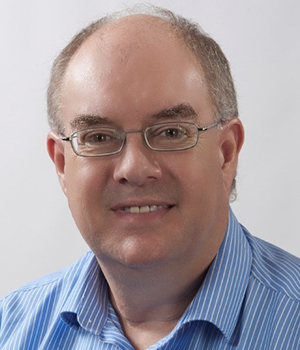 John Reece is currently Professor of Psychological Science at the Australian College of Applied Psychology (ACAP). A career psychology academic, John began his academic career at La Trobe University while completing his PhD. John has also worked at RMIT University and the University of Melbourne before taking up his current position at ACAP in 2014. John’s area of teaching speciality is research methods, and his teaching approach has been rewarded with a number of institutional and national teaching awards, including RMIT University’s Vice Chancellor’s Distinguished Teaching Award, the APS Distinguished Contribution to Psychology Education Award, and a Carrick Citation for Outstanding Contribution to Student Learning. In addition to his work in the higher education sector, John has also maintained a close involvement with secondary school psychology in Victoria and served as the Chief Examiner of VCE Psychology between 2004 – 2006. A long-standing member of the APS, John is currently a member of the DPRET Forum and the APS Advisory Council, and was a member of the APS Science, Academia, and Education Advisory Board. John was on the conference organising committee for the 2020 APS Conference and is currently an Associate Editor for the Australian Journal of Psychology. John’s most notable involvement with the APS has been though the APS Interest Group on Psychology Education, in which he has served as a convenor and committee member. In addition to having a strong presence at every APS Conference, this interest group also runs the successful Australian Psychology Learning and Teaching (AusPLaT) conference. John was the Conference Chair for AusPLaT 2019 in Melbourne and has served on the conference organising committee for each conference.
John Reece is currently Professor of Psychological Science at the Australian College of Applied Psychology (ACAP). A career psychology academic, John began his academic career at La Trobe University while completing his PhD. John has also worked at RMIT University and the University of Melbourne before taking up his current position at ACAP in 2014. John’s area of teaching speciality is research methods, and his teaching approach has been rewarded with a number of institutional and national teaching awards, including RMIT University’s Vice Chancellor’s Distinguished Teaching Award, the APS Distinguished Contribution to Psychology Education Award, and a Carrick Citation for Outstanding Contribution to Student Learning. In addition to his work in the higher education sector, John has also maintained a close involvement with secondary school psychology in Victoria and served as the Chief Examiner of VCE Psychology between 2004 – 2006. A long-standing member of the APS, John is currently a member of the DPRET Forum and the APS Advisory Council, and was a member of the APS Science, Academia, and Education Advisory Board. John was on the conference organising committee for the 2020 APS Conference and is currently an Associate Editor for the Australian Journal of Psychology. John’s most notable involvement with the APS has been though the APS Interest Group on Psychology Education, in which he has served as a convenor and committee member. In addition to having a strong presence at every APS Conference, this interest group also runs the successful Australian Psychology Learning and Teaching (AusPLaT) conference. John was the Conference Chair for AusPLaT 2019 in Melbourne and has served on the conference organising committee for each conference.
Ms Kelleigh Ryan
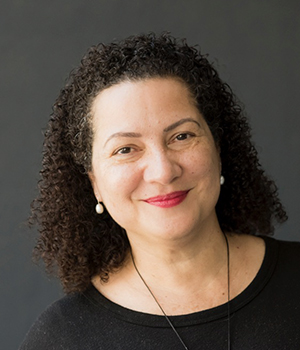
Kelleigh Ryan is a descendant of the Kabi Kabi people of South-East Queensland and the Australian South Sea Islanders on her mother’s side. She have been a member of the Australian Psychological Society since 2009. She is a registered psychologist with Australian Health Practitioner Registration Agency (AHPRA) with a small private practice and a consulting company called The Seedling Group. Kelleigh has a strong history of working with Indigenous and non-Indigenous clients and communities who have experienced trauma. She has shared her knowledge and expertise to support the APS on several Expert Reference Groups and working parties over the past decade to build better therapeutic practice in Australia. Her area of interests and expertise lie in healing from trauma, culturally safe trauma-informed practices and social and emotional wellbeing (SEWB). Within the field of psychology, she has worked across many areas of practice from Employee Assistance Programs (EAP), child and adolescent mental health, family wellbeing, critical incident response, child sexual abuse, Stolen Generations survivors and cultural safety in clinical supervision.
Kelleigh holds a seat on the Australian Indigenous Psychologist Association Board (AIPA) and is one of the founding members of the newly formed First Peoples of the World Psychology Network. In 2019 Kelleigh was honoured with the Indigenous Allied Health Australia’s prestigious “Lifetime Achievement Award” and was the first Aboriginal Psychologist to be appointed as a clinical assessor on the Psychologist Panel of Assessors for the Queensland Civil and Administrative Tribunal (QCAT).
Kelleigh prioritises working with Aboriginal and Torres Strait Islander communities and the organisations, and people who wish to support better outcomes for her countrymen. Her focus is to influence the understanding of cultural safety in trauma informed practice within practice, policy and governance across all sectors. Her work in the private sector, universities, colleges, and research projects has been to influence the practice of cultural safety, raise cultural equity through co-design and Indigenous Standpoint theory. Kelleigh’s practice focus has always been on healing trauma wounds and preventing re-traumatisation for Aboriginal and Torres Strait Islander peoples. As the pandemic has impacted individuals ability to attend training and support, Kelleigh has taken her training on line with coaching provided by fellow Aboriginal and Torres Strait Islander professionals to support the ongoing access to culturally safe clinical knowledge. Kelleigh’s psychological treatment and education training uses the Aboriginal 8 ways of learning to provide a more effective healing experience.
Assoc Prof Monica Thielking
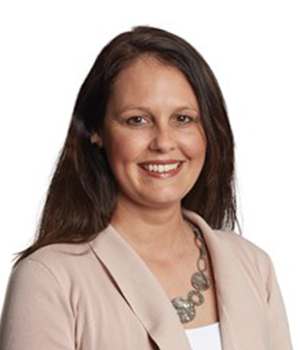 Associate Professor Monica Thielking (DPsych, Fellow - APS Counselling College) has had a longstanding involvement with the APS, leading the creation of the APS Framework for Effective Delivery of School Psychology Services and other important APS resources for psychologists working in school settings during her role as the APS National Advisor Psychologists in Schools from 2006-2010. Monica was the inaugural Chair of the APS Psychologists in Schools Interest Group before accepting an academic position in the Department of Psychological Sciences at Swinburne University of Technology in 2014. Monica is now the Chair of the Department of Psychological Sciences and has achieved national and international recognition as a scholar and leader in school psychology, teacher wellbeing, and the psychology of vulnerable and at-risk youth. Monica’s academic publications and research outputs have had global impact on policy, resulting in governments, schools and community organisations delivering more targeted support to individuals facing multiple forms of disadvantage. Monica has continued to champion the role of psychologists in educational settings and her Handbook of Australian School Psychology: Integrating International Research, Practice, and Policy, with contributions from national and international researchers and expert practitioners, is the first Australian textbook on this subject and has been downloaded up to 200,000 times around the world. Monica has led global initiatives for the advancement of the school psychological profession and over the last 12 months has chaired important international research and networking webinars on the impact of COVID-19 on School Psychology. Monica continues to work with the APS on important national initiatives to advance the psychology discipline in Australia and is currently serving as an academic reference group member on the Australian Indigenous Psychology Education Project.
Associate Professor Monica Thielking (DPsych, Fellow - APS Counselling College) has had a longstanding involvement with the APS, leading the creation of the APS Framework for Effective Delivery of School Psychology Services and other important APS resources for psychologists working in school settings during her role as the APS National Advisor Psychologists in Schools from 2006-2010. Monica was the inaugural Chair of the APS Psychologists in Schools Interest Group before accepting an academic position in the Department of Psychological Sciences at Swinburne University of Technology in 2014. Monica is now the Chair of the Department of Psychological Sciences and has achieved national and international recognition as a scholar and leader in school psychology, teacher wellbeing, and the psychology of vulnerable and at-risk youth. Monica’s academic publications and research outputs have had global impact on policy, resulting in governments, schools and community organisations delivering more targeted support to individuals facing multiple forms of disadvantage. Monica has continued to champion the role of psychologists in educational settings and her Handbook of Australian School Psychology: Integrating International Research, Practice, and Policy, with contributions from national and international researchers and expert practitioners, is the first Australian textbook on this subject and has been downloaded up to 200,000 times around the world. Monica has led global initiatives for the advancement of the school psychological profession and over the last 12 months has chaired important international research and networking webinars on the impact of COVID-19 on School Psychology. Monica continues to work with the APS on important national initiatives to advance the psychology discipline in Australia and is currently serving as an academic reference group member on the Australian Indigenous Psychology Education Project.
Assoc Prof Patsy Tremayne
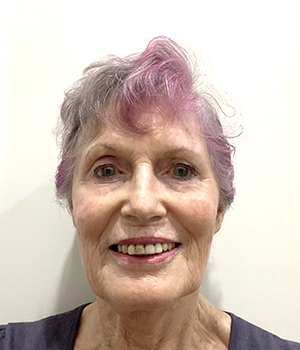
Dr. Patsy Tremayne is an Adjunct Associate Professor in the School of Social Sciences and Psychology at Western Sydney University and is one of the senior sport and exercise psychologists in the country. In 1998 Patsy introduced a master’s degree in Sport and Exercise Psychology in the Department of Psychology at Western Sydney University, a first for New South Wales.
Patsy is a Foundation member for the APS College of Sport and Exercise Psychologists and was the Professional Development Convenor and Executive Committee Member for the APS College of Sport and Exercise Psychologists from 1998 to 2006. She was also the chairperson for the NSW branch from 1997 to 2003, and again from 2005 to 2008. In 2007 she was awarded an Australian Psychological Society Award of Distinction for services to sport and exercise psychology.
From 2007 to 2015 Patsy was the Psychology Coordinator for the New South Wales Institute of Sport.
Since 2010 Patsy has had a fulltime private practice specifically focusing on performance enhancement for junior doctors who need to study and pass major exams under often difficult and stressful conditions. This has been particularly so with the advent of COVID19 when these exams have been postponed and changed. She works with doctors around Australia and New Zealand in all the major specialties. Her PhD in psychophysiology from the University of NSW has been particularly useful in helping doctors to study smarter through the optimal use of the brain, and two years ago she wrote a book for junior doctors called “Ace Your Medical Exams”.
Patsy also competes in ballroom dancing. This is a great way to practise and develop the same skills and strategies that she teaches doctors to assist them as they prepare for their rigorous written and oral fellowship exams.
Dr Lisa Warren
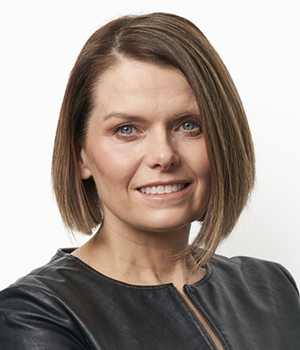
Dr Lisa Warren is a renowned threat management expert with dual area of practice endorsements in clinical and forensic psychology. She is the Clinical Director of Code Black Psychology and an Adjunct Senior Lecturer at the Monash University School of Psychiatry.
As both a clinical and forensic psychologist, Dr Warren actively works at the intersection of psychology and the law. Her research in the field of threats to kill is internationally acclaimed, and she regularly provides lecturers and keynote addresses throughout Australia, New Zealand, the United States and Europe.
Most recently, Dr Warren has expanded her research into the association between homicide and suicide, including the complex interconnection between risk to others and risk to self. Dr Warren was the Founding Manager of the Problem Behaviour Program at the Victorian Institute of Forensic Mental Health (Forensicare), the Founding President of the Asia Pacific Association of Threat Assessment Professionals (APATAP) and was a member of the inaugural senior editorial board of Journal of Threat Assessment and Management.
Dr Warren’s work has consistently challenged conventional myths and assumptions around the impacts of offending and what they mean for individuals and organisations. Since the inception of her professional career, she has advocated for the importance of understanding victim/survivor experiences as logical outcomes of extraordinary events to support the prevention of victim blaming. This work covers issues of family violence and coercive control, with an emphasis on patterns of concerning and problem behaviour, particularly when victim/survivors are repeatedly targeted.
Dr Warren held the role of Chair of Ethics for the Australian Psychological Society for two years. During this time, she advocated the importance of recognising ethical dilemmas and formal complaints as opportunities for both individual and sector-wide growth. To this end, Dr Warren continues to support initiatives that encourage the psychology profession to lead by example and offer best practice peer support and training in the field of ethics.